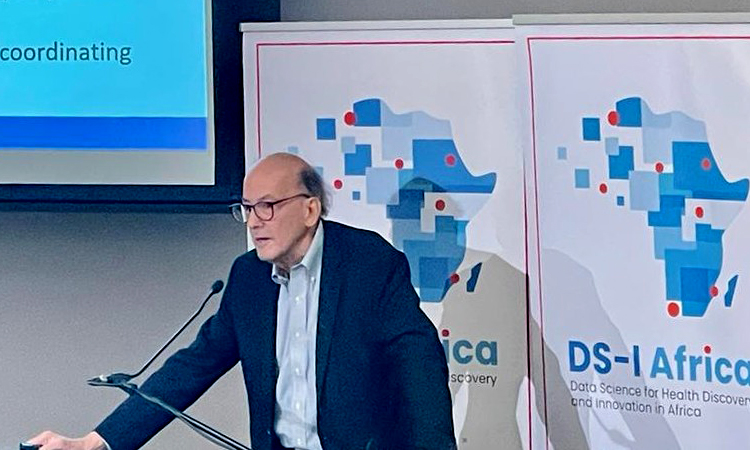
African data scientists gather in Cape Town at major networking conference
November 1, 2022
The Human Hereditary and Health in Africa (H3Africa), African-Wits-Indepth Genomic Study (Awi-Gen Study), Rounds off with Dissemination of Study Findings
January 24, 2023
Fogarty centre director is proud people his initiative train are leading Africa’s Covid-19 response
Fogarty International Center director Roger Glass is in Cape Town, South Africa. He’s only recently resumed traveling to meet people in person since the Covid-19 pandemic struck, and he’s enjoying it.
He’s here for the second meeting of the Data Science for Health Discovery and Innovation in Africa (DS-I Africa), a US$75 million initiative to advance African data science, with a focus on health. The initiative’s first meeting, a year ago, was held virtually.
DS-I Africa was conceived before the pandemic hit, but Covid-19 has clearly illustrated the importance of what the initiative aims to do, Glass told Research Professional News on the sidelines of the meeting.
“There’s nothing that has energised the value of data science and innovation more than the Covid pandemic,” he said.
“Still, much more needs to be done,” he noted. “The ability to communicate rapidly to share strains and specimens and sequences will all be part of our new biosecurity.”
Training people
DS-I Africa funds 20 consortia around Africa, with projects ranging from data science training to developing ethical frameworks for data-sharing and, of course, data-rich research.
By training people and investing in their capacity in this way, Glass believes Fogarty played a role in Africa’s robust scientific response to the Covid-19 pandemic.
“What we’re proud of is that the people we’ve funded in the past, even if they were funded for AIDS programmes or for diagnosis or epidemiology, became leading responders to Covid in their countries,” he said.
The first African lab leader to sequence a coronavirus genome, Christian Happi at Redeemer’s University in Nigeria, had a grant from H3Africa, a genomic research programme that Fogarty supports, Glass explained.
And he notes that Sikhulile Moyo, the virologist at the Botswana-Harvard AIDS Institute Partnership who first spotted the Omicron variant, is a former Fogarty Fellow.
“I think if we had another outbreak, it’ll be the people that we’ve invested in who will be on the front lines.”
